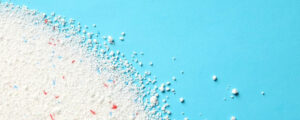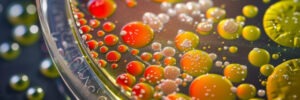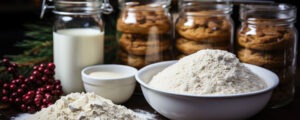Skincare is a vast and evolving field, with numerous products promising clear, glowing, and youthful skin. Among the many ingredients used, natural enzymes have become increasingly popular for their ability to gently but effectively improve skin health. One such enzyme that has garnered attention in recent years is papain. Derived from the papaya fruit, papain offers multiple benefits for the skin, including fighting acne, promoting healing, and providing a gentle exfoliation that helps reveal fresh, vibrant skin.
What is Papain?
Papain is a proteolytic enzyme, meaning it breaks down proteins into smaller peptides and amino acids. It is found in abundance in the papaya fruit (Carica papaya), particularly in the unripe fruit, leaves, and latex of the plant. In traditional medicine, papain has been used for its digestive and anti-inflammatory properties, but more recently, its use has expanded into the realm of dermatology and skin care.
The enzyme’s ability to break down proteins is what makes it particularly effective in skin care. Dead skin cells, excess oils, and other impurities on the skin are largely composed of proteins, and papain helps to break these down, revealing clearer, healthier skin underneath. Additionally, papain is known for its soothing and anti-inflammatory properties, making it ideal for those with sensitive or acne-prone skin.

Papain and Acne: A Natural Fighter
Acne is a common skin condition that affects millions of people globally. It occurs when the hair follicles become clogged with oil, dead skin cells, and bacteria. This can lead to inflammation, breakouts, and, in more severe cases, painful cysts or nodules. Conventional acne treatments often involve harsh chemicals or antibiotics, which can lead to skin irritation or long-term dependency. For those looking for a more natural solution, papain offers a promising alternative.
1. Exfoliating Properties
One of the main ways papain helps fight acne is through its exfoliating action. Exfoliation is a crucial step in preventing acne because it removes the dead skin cells that can clog pores and contribute to breakouts. However, many physical exfoliants can be too abrasive, especially for sensitive or acne-prone skin, leading to further irritation and inflammation.
Papain, on the other hand, acts as a gentle chemical exfoliant. It breaks down the protein bonds between dead skin cells, allowing them to be easily removed without the need for scrubbing. This helps keep the pores clear and reduces the risk of blockages that can lead to acne. Regular use of papain-based products can result in smoother skin texture, fewer breakouts, and a brighter complexion.
2. Anti-Inflammatory Action
Acne is not just about clogged pores; inflammation plays a significant role in the formation and persistence of acne lesions. When the skin becomes inflamed, it can lead to redness, swelling, and even the formation of painful cystic acne. Papain has natural anti-inflammatory properties that help to reduce this inflammation, making it particularly useful for those suffering from inflammatory acne, such as pustules and cysts.
By calming the skin and reducing swelling, papain can help minimise the appearance of active breakouts and prevent the formation of new ones. This soothing action also makes papain ideal for individuals with sensitive skin who may react to harsher acne treatments.
3. Antimicrobial Effects
Bacteria, particularly *Propionibacterium acnes*, play a major role in the development of acne. This bacterium thrives in the oily environment of clogged pores, leading to infection and further inflammation. Papain has been shown to have antimicrobial properties, helping to fight off bacteria that contribute to acne breakouts.
While it may not be as strong as prescription antibiotics, papain offers a natural and gentle alternative for keeping acne-causing bacteria in check without the risk of antibiotic resistance or the harsh side effects associated with some traditional acne treatments.

Papain and Skin Healing
In addition to its acne-fighting abilities, papain is also known for its skin-healing properties. This makes it an excellent ingredient not only for preventing breakouts but also for promoting recovery and reducing the risk of scarring after acne.
1. Accelerating Wound Healing
Papain’s ability to break down proteins is not only useful for exfoliation but also for wound healing. When the skin is damaged, whether by acne or other forms of injury, it undergoes a complex healing process that involves the removal of dead tissue, the formation of new skin cells, and the rebuilding of the skin’s protective barrier.
Papain acts as a natural debriding agent, meaning it helps to remove dead or damaged tissue from wounds, allowing the healing process to proceed more effectively. This makes it particularly beneficial for acne lesions, which can sometimes result in open wounds or scars if not treated properly. By promoting the removal of damaged tissue, papain helps to accelerate the skin’s natural healing process, leading to faster recovery and a reduced risk of scarring.
2. Reducing Hyperpigmentation and Scarring
One of the most frustrating aspects of acne, particularly for those with darker skin tones, is the hyperpigmentation and scarring that can remain long after the acne itself has healed. Post-inflammatory hyperpigmentation (PIH) occurs when the skin produces excess melanin in response to inflammation, leading to dark spots or patches.
Papain’s exfoliating and anti-inflammatory properties can help reduce the appearance of hyperpigmentation by speeding up the skin’s natural shedding process and reducing the inflammation that contributes to PIH. Over time, regular use of papain-based products can help fade dark spots and improve overall skin tone.
Furthermore, papain’s ability to promote wound healing also makes it effective in reducing the appearance of acne scars. By encouraging the formation of new, healthy skin cells, papain can help fill in the pitted scars that sometimes result from severe acne, leading to a smoother skin texture.
How to Use Papain in Skin Care?
Papain is most commonly found in skin care products such as cleansers, masks, exfoliants, and serums. When choosing a product with papain, it’s essential to follow the usage instructions carefully, as overuse of exfoliating enzymes can lead to skin irritation or sensitivity.
For acne-prone individuals, using a papain-based product two to three times a week can help keep breakouts under control while promoting healing. It’s also important to pair papain with other supportive skin care ingredients, such as moisturisers and sunscreens, to protect and nourish the skin while it heals.

Conclusion
Papain offers a natural, gentle, and effective way to fight acne and promote skin healing. Its exfoliating, anti-inflammatory, and antimicrobial properties make it a powerful tool in the fight against acne, while its ability to accelerate wound healing and reduce hyperpigmentation helps improve skin texture and tone over time.
Biolaxi Enzymes, a trusted supplier of high-quality enzyme formulations, offers a range of enzyme-based solutions, including papain, tailored to meet the needs of the cosmetics and skin care industry. With a commitment to innovation and quality, Biolaxi Enzymes ensures that their products provide safe and effective results for both consumers and manufacturers.
By providing reliable and scientifically backed enzyme formulations, Biolaxi Enzymes plays a crucial role in advancing natural skin care solutions, offering consumers access to safe, effective, and gentle treatments for acne and other skin concerns.




